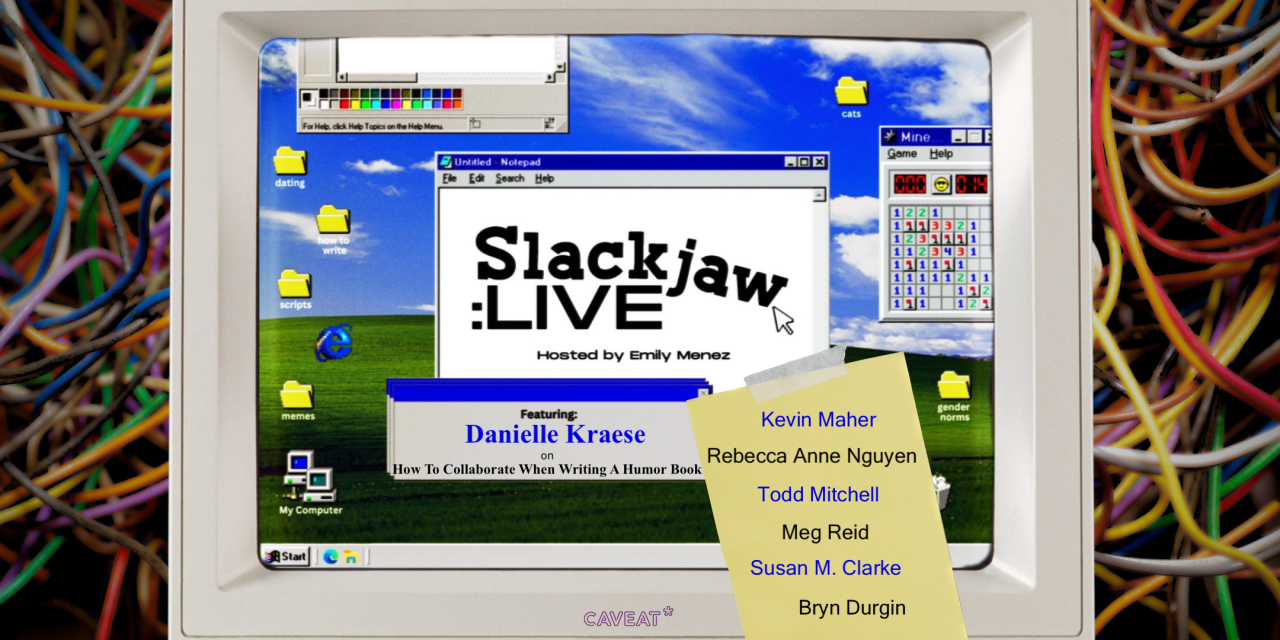I made a small change in how I track communication, and it’s made a huge impact.
I’m revisiting the way I do things while I transition to digital bullet journaling (lots more on that soon), and I wanted to explore one of the most impactful adjustments in my efforts to be a more effective person.
You see, I have this one tricky hurdle in both my personal and professional endeavors: other people. I know that sounds judgmental, antisocial, and just plain bad, but hang with me for a moment and see where I’m headed.
The “other people” problem
I’m not saying other people are inferior in some way or that I think they’re out to get me. Most things worth doing eventually rely on another person. You need occasional insight from experts or permission from someone in a role of authority. You have to follow unavoidable procedures. The problem is that the other person rarely has equal motivation to help you get that thing done. Calls get dismissive answers, people give you attitude hoping you’ll go away, and emails disappear into the void. When someone does take action, they do it wrong because they aren’t paying attention.
I say this with full understanding that every person is the lead in their own play and that people are out there grappling with things I’ll never know about. I strive to accept the Stoic virtue of Justice which establishes the bond of human society and the philosophy that people are meant to work together. Few people out there are strictly incompetent, and even fewer are truly wandering around looking to victimize anyone.
Unfortunately, simple methods of autopilot communication result in important things failing or slipping through the cracks while you wait for someone to come through. The pattern has played back so often for me that I’ve had to make some personal adjustments.
I’m using a bullet journal as a personal productivity system, but what I’m going to describe here works with GTD, Kanban, or just a plain old to-do list.
New ways to think about communication
What do I mean by “autopilot communication?”
I think when we depend on someone else to get something done, there’s an instinct to be proactive once and then rely on others to do their part in a timely fashion. It’s perfectly natural. You’re only in control of yourself, and it’s reasonable to think that your job is just to send the volleyball over the net and wait to see what happens.
In a perfect world, this would always work. You would send someone an email and stop thinking about it, they would reply with exactly what you need, and you would meet your objective. But volleying doesn’t win games. Points do.
The fault in autopilot communication is it assumes everyone is always in the right mindset and circumstances to help you meet your goals. In this light, it’s a wonder we ever get what we need from someone else correctly on the first try.
My humble suggestion is this: don’t track your attempts; track the results you need.
Rewording the task
As a younger adult, nothing made me happier than checking an attempt off my list. I’d sent a letter about my credit card. I’d called customer service about my vehicle warranty. I’d e-mailed an address I found on a website about getting an appointment. Check, check, and check.
I always had a list of things to try–call electrician, email Mary, ask Greg about vacation–but my failure rate was through the roof. I always fell into the trap of letting a problem fall off my radar simply because I’d tried something.
The first phase in turning the tide was to write to-dos I couldn’t check off until I had what I needed. “Get Bill’s explanation re: tax form.” This immediately helped me shift my focus from what I could try to what was most likely to work.
This sometimes meant making myself a nagging problem for someone they needed to solve to return to a normal life. That’s not something I enjoy, but I’m willing to do it.
Most people are well intentioned but struggling in some form or another, so I strive to be understanding while persistent. I want to have a pleasant life and be a pleasant part of someone else’s day, but ultimately, most of what I do in life is designed to benefit my family and their future, so my approach is to be as kind as possible on my way to goals I intend to achieve at nearly any cost.
This mindset naturally adjusts my communication with people. I don’t call to see what’s possible; I have a thing I have to do.
When someone isn’t coming through for whatever reason, I pause to evaluate whether I could get to the bottom of it myself in a shorter period of time. If not, I dig in and become a fixture in that person’s life. Most people will get tired of me and do what I need. If they retreat instead of advance, I look for alternate contact methods or close colleagues I can start up with. I like to think I would have made a decent detective. I think I’ve done solid work as a journalist.
Eyes on the prize
Because this approach takes time, I eventually made another small improvement on the technique: tracking only my highest-level objective. Do I need Bill’s explanation of the new tax form, or do I simply need my taxes done? This example isn’t entirely hypothetical.
A couple of years ago, my wife and I had an accountant who loved working with folks in my wife’s profession but, for whatever reason, she didn’t really want to deal with my small LLC. An accountant is supposed to be an important ally for any small business owner, ready to provide advice and keep you informed as you work and earn throughout the year. This was all pretty much out the window with her. If I tagged along to my wife’s appointments and we stayed on the accountant’s case about it, we could get her to whip up my LLC’s tax paperwork at the end of the year. Eventually, she stopped answering my e-mails, even at tax time.
I called one morning to see what was going on, and the receptionist sent me to voicemail. I was highly suspicious about an accountant being suddenly unavailable during the work week right before tax time, so I asked my wife to try calling. She got right through. When my wife handed me the phone, the accountant immediately copped an attitude. We fired her.
We went to one of her scrappy new competitors in town who described us as “dream clients.” We’ve all been very happy together ever since.
I didn’t need her to do my taxes. I just needed my taxes done. Nearly everyone has a competitor, and nearly everyone can be replaced.
The big exception is the government agencies we all need to deal with from time to time. The government has no competition, and it usually shows. But that’s the graduate version of this topic. As a former defense contractor, I can tell you the method still works, and it usually involves beating someone at their own very stupid game.
At the corporate level
When dealing with big companies, I take many of the same approaches, but I start the full press right away, and things escalate a lot faster. By the time I’m in this mode with a company, there has usually already been a small disaster. I’ll make numerous calls to phone numbers where different representatives pick up. I’ll try all the different contact methods offered because they all tend to work differently. I’ll search for hidden direct lines on Google and see how disgruntled customers reached resolutions through Twitter, Facebook, the Better Business Bureau, Yelp, and Google Reviews.
We’ve reached an unfortunate age when the best path to many companies goes the public route through their social media team. It’s true that these companies treat customers with an audience differently. That’s unfair, but again, I’m out here trying to resolve problems for my family, and I’ll use anything available to me without shame. I’ve written about companies that behave badly at length, and they do not like it. I’ve also agreed to talk to other journalists when companies have behaved that badly. When the situation calls for it, I’ll gladly turn the volume as high as it will go.
And it’s worked.
Since transitioning to results-based tracking, I’ve achieved my desired goals more often in everything I do. I’ve come out on top in long clashes with big companies including highly visible tussles with Facebook and Peloton. At the individual level, my communication has become more direct, my problem solving has improved, and my success rate in relying on other people has greatly increased. This kind of goal orientation will make you clearer, more effective, and get you what you want a lot more often.






Leave a Reply